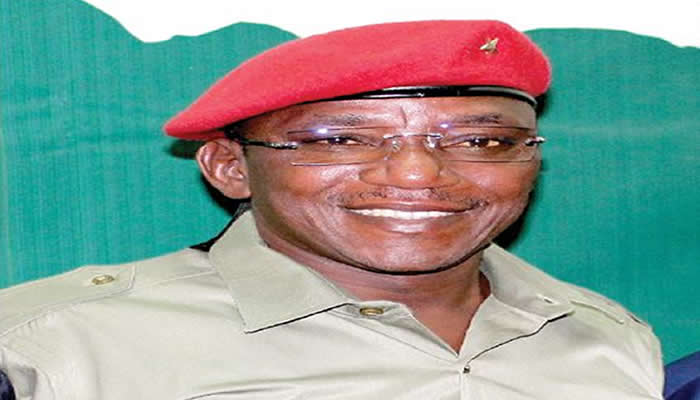The dismal performance of Nigeria’s Super Eagles in the recent World Cup qualifiers has sparked widespread concern and disappointment, prompting former Minister of Youths and Sports Development, Solomon Dalung, to voice his criticism of the current state of sports management and administration in the country. Dalung, speaking during a visit to the Emir of Ilorin’s palace, expressed his regret over the steady decline of the national team since his departure from office six years ago. He pointed to the 2018 World Cup qualification, achieved with a match to spare, as the last glimmer of hope, a stark contrast to the team’s subsequent struggles to even secure a spot in the prestigious tournament. The recent loss to Zimbabwe, in particular, has dealt a severe blow to the Super Eagles’ chances of participating in the next World Cup, leaving fans and former officials disillusioned.
Dalung’s assessment of the situation highlights a critical lack of committed leadership within the sports sector as the primary impediment to the growth and development of football, and indeed, all sports in Nigeria. He argues that the constant policy shifts and frequent changes in leadership have created instability and hindered progress. The absence of a dedicated Ministry of Sports, replaced by the technically-oriented National Sports Commission, has further exacerbated the problem. This restructuring, according to Dalung, has created a void in the Federal Executive Council, leaving no strong advocate to champion sports policies and initiatives at the highest level of government. The absence of this political will, he believes, is crucial, even more so than having a top-tier coach, as it is the driving force behind inspiring players, mobilizing national support, and ultimately, achieving victory.
The former minister contends that the current setup lacks the necessary political impetus to effectively steer the Nigerian sports landscape towards success. He emphasizes the importance of a dedicated and consistent leadership that can provide the necessary vision and direction. The absence of such leadership, he argues, leaves even the most skilled coaches without the essential support system required to motivate players and galvanize public enthusiasm. This lack of a unified and driving force, in Dalung’s view, has ultimately led to the Super Eagles’ recent setbacks and their dwindling prospects in the World Cup qualifiers.
Dalung’s concerns extend beyond the immediate performance of the Super Eagles, touching on the broader implications of inconsistent leadership and policy within the Nigerian sports sector. The frequent changes at the helm, coupled with the shift from a dedicated Ministry of Sports to a more technically focused National Sports Commission, have created a vacuum in strategic direction and political advocacy. This lack of consistent leadership, he argues, hinders the development of long-term plans and sustainable growth for Nigerian sports. The absence of a powerful voice at the Federal Executive Council level further weakens the sector’s influence and ability to secure necessary resources and support.
Furthermore, Dalung emphasizes the crucial role of political will in driving sporting success. He posits that even the most talented coaches require a strong foundation of political support and a conducive environment to thrive. This includes not only financial backing but also the creation of a positive national sporting culture, the mobilization of public support, and the implementation of effective development programs. Without this political impetus, even the most brilliant strategies and coaching expertise can fall short, leaving the national team vulnerable to setbacks and hindering its ability to compete at the highest international level. The current situation, according to Dalung, reflects this lack of political will, manifested in the team’s poor performance and the general decline of the sports sector.
In summary, Dalung’s critique paints a picture of a Nigerian sports landscape struggling with systemic issues rooted in inconsistent leadership, policy fluctuations, and a lack of sustained political will. He argues that these factors have created an environment where even the most promising talent struggles to flourish and where the national team’s potential remains untapped. His call for a return to a dedicated Ministry of Sports and the establishment of a consistent, committed leadership structure underscores the urgency of addressing these fundamental issues to revitalize Nigerian sports and restore the Super Eagles to their former glory. The current state of affairs, characterized by ad-hoc policies and frequent leadership changes, has created a sense of uncertainty and instability, ultimately hindering the progress and development of Nigerian sports. Dalung’s concerns serve as a stark reminder of the critical need for a long-term, strategic vision supported by strong political will to ensure the future success of Nigerian sports on the international stage.














